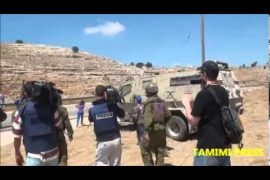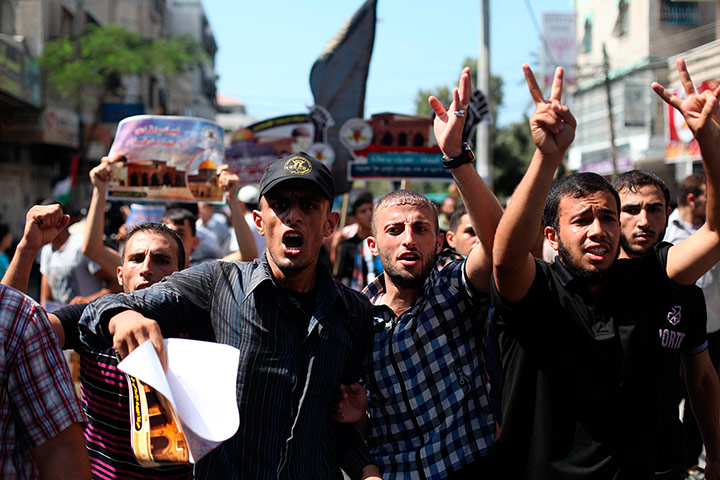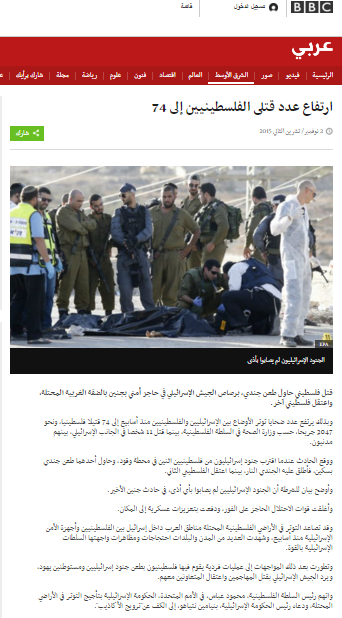It does not get much more surreal than this.
The BBC News website is, of course, full of reports on the ‘ceasefire’ between Israel and Hamas which supposedly went into effect at 9 pm local time on November 21st.
Here is Jon Donnison’s article on the subject:
Here is a screenshot of Israeli Channel 2 television at the moment the ceasefire came into effect:
Schools are still closed in southern Israel on Thursday morning. During the two hours following the announcement of the ceasefire, 13 missiles were fired into Israeli territory from the Gaza Strip, of which 10 fell short. Thirteen hours after the ceasefire began, the sirens wailed once more in the Eshkol region – located right on the border – but that rocket too fell short. The BBC’s Jon Donnison, however, tried to pass that off as a ‘false alarm’ on Twitter.
It is notable that despite having numerous reporters in the Gaza Strip during the past eight days, the BBC has made no effort whatsoever to investigate the subject of 152 known shortfalls (not including those fired since the ceasefire came into effect) of rockets fired by Palestinian terrorists and how many of the reported deaths in the Gaza Strip are as a result of those.
Donnison’s article also states (note the scare quotes) that:
“Overnight, the Israeli Defence Forces (IDF) said it had arrested 55 “terror operatives” in the West Bank, including some at a senior level, in an effort to “restore calm”.
There have been a number of protests in the West Bank in the past week against Israel’s Pillar of Defence operation, with some protesters clashing with Israeli soldiers.”
What Donnison fails to inform his readers is that rioters have also targeted Israeli civilians, with motorists being stoned and Molotov cocktails thrown at passing Israeli cars. Even as the ceasefire was supposed to be coming into effect, a gunman shot at an Israeli civilian bus in Gush Etzion.
Donnison continues the BBC practice of indiscriminate quoting of Hamas-supplied casualty figures – failing to distinguish between the deaths of terrorist combatants and those of civilians:
“Five Israelis and more than 150 Palestinians have died since the outbreak of violence began last week.”
And, continuing the tradition of binge-punctuation, together with the use of the phrase ‘Israel says’, Donnison writes:
“Israel says it targeted 1,500 “terror sites” during Operation Pillar of Defence.
It says its targets included 30 senior militants, 980 underground rocket launchers and 140 smuggling tunnels.
The Israel Defense Forces (IDF) said that, for the first time, militants in Gaza had fired long-range rockets, such as the Fajr-5, toward Tel Aviv and Jerusalem.” [emphasis added]
Donnison’s article is accompanied by a video, a version of which also appeared on BBC television news. Donnison describes the “jubilation” and “celebrations” on the streets of Gaza on Wednesday night, commenting that “they do seem to know how to party”.
Amazingly, the abundant availability of images such as the one below do not appear to have any effect on the BBC correspondents’ understanding or analysis of Middle East issues.
Update:
It has now been cleared for publication that Wednesday night’s arrests of what Donnison described above as “terror operatives” (in scare quotes) included the terror cell – Hamas and Palestinian Islamic Jihad linked – responsible for the bombing of the bus in Tel Aviv. Will the unnecessary punctuation now be removed?







